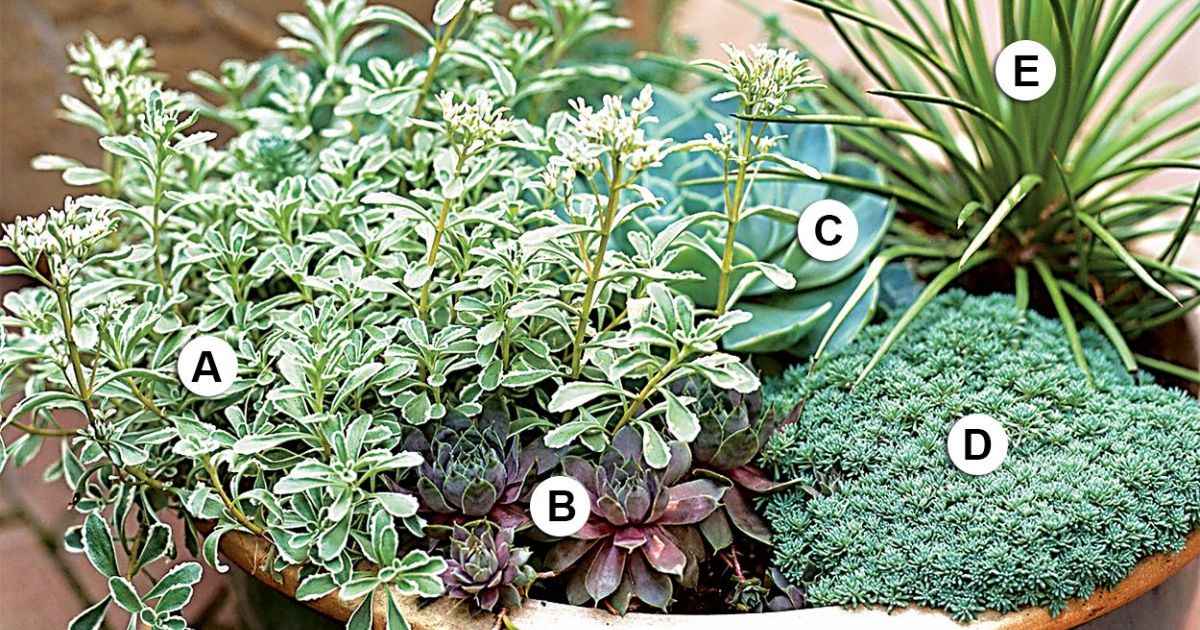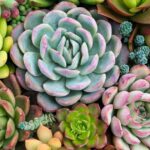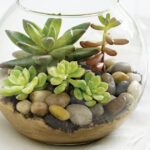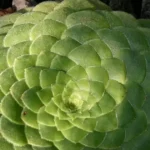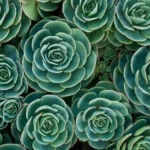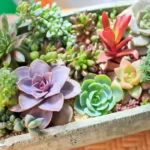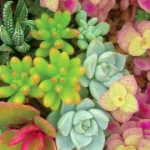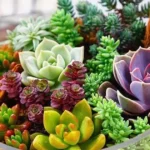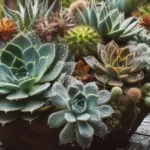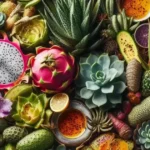Succulents are a popular choice for indoor and outdoor gardens due to their striking appearance and low maintenance. However, if you have cats, it’s crucial to ensure that the succulents you choose are safe for them. Some succulents can be toxic to cats when ingested, causing a range of health issues.
Worried about your furry feline companions and the allure of your succulent garden? Discover the answer to the burning question: “What succulents are safe for cats?” Ensure a harmonious coexistence between your greenery and your pets while adding a touch of natural beauty to your living space. Explore the cat-friendly succulent options and create a safe and inviting environment for both your plants and your beloved cats today.
Determining which succulents are safe for cats is essential for pet owners. Some succulents can be toxic to cats when ingested, leading to digestive issues and other health concerns. Cat-safe succulents like Haworthia, Spider Plant, and Christmas Cactus provide a decorative and non-toxic solution for households with both greenery and feline friends.
Understanding the Dangers of Toxic Succulents
Before delving into cat-friendly succulents, let’s understand why it’s crucial to keep toxic succulents out of your cat’s reach.
Toxic Succulents
Some succulents contain compounds that, when ingested by cats, can cause a range of health issues. These issues can range from mild gastrointestinal problems to more severe symptoms, including vomiting, diarrhea, lethargy, or even organ failure in extreme cases.
Curious Cats
Cats are naturally inquisitive and often chew on plants as a form of exploration. This curiosity can sometimes lead them to taste-test your succulents. However, if you notice your “Succulent Turning Brown,” it’s important to determine whether this change in color is due to the cat’s nibbling or other factors. To maintain the health of your succulents, make sure that any plants within their reach are non-toxic and take steps to prevent your “Succulent Turning Brown” due to feline curiosity.
Safety First
As a responsible pet owner, it’s crucial to prioritize your cat’s well-being and take proactive steps to protect them from potentially harmful plants.
Cat-Friendly Succulents
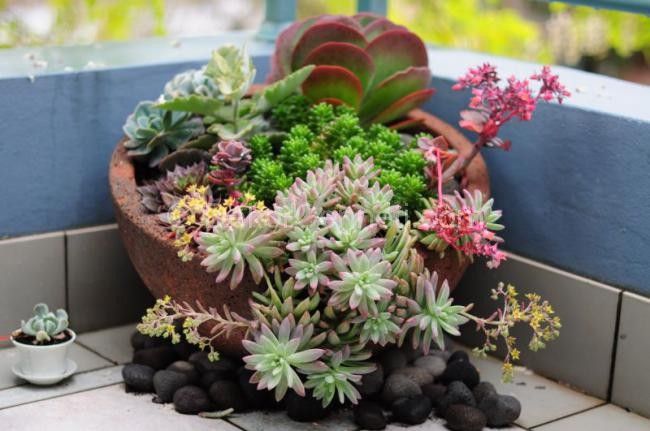
Now, let’s explore succulents that are safe for cats and can peacefully coexist with your curious feline companions.
| Succulent Species | Toxicity to Cats |
| Haworthia (Haworthiopsis) | Non-toxic |
| Spider Plant (Chlorophytum comosum) | Non-toxic |
| Christmas Cactus (Schlumbergera) | Non-toxic |
| Echeveria | Generally non-toxic, but monitor |
| Sedum | Generally non-toxic, but monitor |
| Kalanchoe | Toxic |
| Aloe Vera | Toxic |
Characteristics
Haworthias are small, attractive succulents with rosette-shaped clusters of fleshy leaves.
They are non-toxic to cats and make an excellent addition to your indoor garden.
Haworthias are low-maintenance and thrive in bright, indirect sunlight.
Christmas Cactus (Schlumbergera)
Christmas cacti produce beautiful, colorful flowers and have segmented, flat stems.
These succulents are non-toxic to cats and provide a festive touch to your home during the holiday season.
They require bright, indirect light and slightly higher humidity.
Areca Palm (Dypsis lutescens)
While not a succulent, the Areca palm is a cat-friendly houseplant.
It features feathery, arching fronds and helps improve air quality.
Place it in indirect sunlight and keep the soil consistently moist but not waterlogged.
Tips for Creating a Safe Environment
Incorporating cat-friendly succulents into your home is just the beginning. Here are some additional tips to ensure a safe environment for both your cats and your plants.
Elevate Your Succulents
Place your succulents in high or hard-to-reach areas to prevent your cats from nibbling on them. Consider using hanging baskets or wall shelves to keep your plants out of your pet’s reach.
Monitor Plant Placement
Keep a close eye on where your cats like to roam and play. If they show a particular interest in your plants, adjust their placement accordingly.
Cat Grass
To satisfy your cat’s natural urge to chew on plants, provide them with cat grass. This can divert their attention away from your succulents and provide a safe alternative.
Non-Toxic vs. Poisonous Succulents
Understanding the difference between non-toxic and poisonous succulents is vital for the safety of your cats. Let’s explore some common succulents and their toxicity levels.
Sedum
Echeverias are stunning rosette-shaped succulents that are generally considered safe for cats. However, it’s essential to monitor your pets’ behavior around them, as some cats may still be tempted to chew on these plants.
Sedums are another group of succulents that are typically non-toxic to cats. They come in various shapes and sizes and can be an attractive addition to your garden.
Poisonous Succulents
Succulents Are Safe For Cats, unlike some succulents like Kalanchoe and Aloe Vera, which are considered poisonous to cats and can lead to various health issues if ingested.”
Kalanchoe
Kalanchoe succulents can be toxic to cats, especially if ingested. They contain compounds that can cause gastrointestinal irritation and more severe symptoms in cats.
Aloe Vera
Aloe vera, known for its soothing properties for humans, is toxic to cats. Ingesting aloe can lead to gastrointestinal upset and other health issues in your feline friends.
Alternatives for Cat Owners
If you’re concerned about the safety of your cats around succulents, there are alternative plant options to consider.
Cat Grass (Wheatgrass)
Cat grass is a safe and attractive option for cats. It’s easy to grow indoors, and many cats enjoy nibbling on it. Cat grass provides a healthy diversion from your other plants.
Herbs
Growing cat-safe herbs like catnip, cat thyme, or catmint can be a great way to provide your cats with a safe and stimulating source of entertainment.
FAQ’S
Which succulent is safe for cats?
Succulents that are safe for cats include Haworthia, Spider Plant, Christmas Cactus, and non-toxic Echeveria and Sedum varieties.
Are any succulents toxic to cats?
Yes, some succulents can be toxic to cats, such as Kalanchoe and Aloe Vera, and may cause gastrointestinal issues and other health concerns if ingested.
Which succulents are not poisonous?
Succulents that are generally not poisonous to cats include Echeveria and Sedum, making them safer choices for households with feline companions.
Conclusion
The well-being of your cats should always be a top priority, and this includes ensuring that the plants in your home are safe for them. While some succulents can be toxic to cats, there are numerous cat-friendly succulents and alternative plant options that can bring natural beauty into your living space without compromising your pets’ health. By making informed choices and taking precautions, you can create a safe and harmonious environment where both your succulents and your feline friends can thrive.
